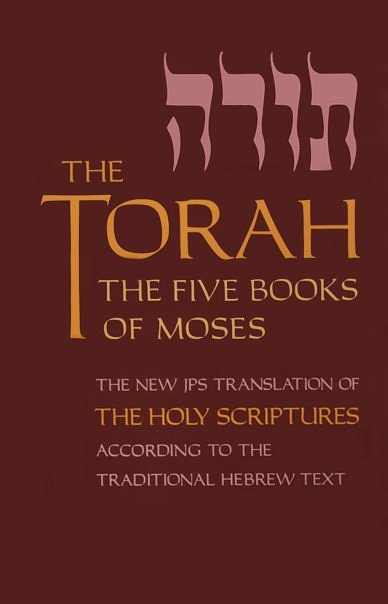Post Author: Bill Pratt
 Although virtually no Christians advocate a return to the sacrifices enumerated in the Law, especially in the Book of Leviticus, we should still ask ourselves why this system was not sufficient to completely deal with the sins of mankind.
Although virtually no Christians advocate a return to the sacrifices enumerated in the Law, especially in the Book of Leviticus, we should still ask ourselves why this system was not sufficient to completely deal with the sins of mankind.
Duane Lindsey provides a very helpful explanation of the issues in The Bible Knowledge Commentary. Lindsey first notes that the sacrifices did accomplish something. Atonement for sins is mentioned several times in Leviticus. According to Lindsey,
[S]acrificial atonement involved the actual removal of the guilt and punishment for the particular sin(s) involved. The broad scope of the sacrifices on the Day of Atonement . . . extended this principle to include “all the people” (Lev 16:33) and “all their sins” (v. 22), that is, “all the sins of the Israelites” (v. 34). The complete forgiveness of the Israelites’ sins for the past year is further described in terms of cleansing from sin in verse 30.
But Lindsey notes that there were several limitations of these sacrifices that made them unable to finally and completely deal with mankind’s sin problem.
First, the sacrifices were limited in their moral efficacy. Since empty ritualism was never an acceptable option to God, a truly acceptable sacrifice must have been prompted by genuine faith and moral obedience to the revealed will of God (26:14–45, esp. v. 31; Pss. 40:6–8; 51:16–17; Prov. 21:27; Amos 5:21–24; Heb. 10:5–10; 11:4, 6).
Sacrifices that were not brought in faith were perhaps sufficient at times for restoring ceremonial cleanness and meeting civil requirements (e.g., the restitution connected with the guilt offering), but did not really please God because they were empty formality. . . .
Second, with the possible exception of the Day of Atonement ritual, the sacrifices were limited in scope to certain kinds of personal sins. Theologically they did not atone for the sin nature, or for the imputed sin of Adam. Nor did they even include willful acts of sin which were committed in defiance of God (cf. Num. 15:30–31, and comments on Lev. 4:1–2). Therefore Levitical sacrifice was not a complete and final scheme whereby all forms of sin could be removed.
It was mainly concerned with sins of ignorance, accident, carelessness, and omission, including sins of ritual defilement and misdemeanors that violated property rights. Sins for which there was no individual sacrifice were those done in defiance of the Lord and His commands—willful violations of the Ten Commandments (except minor violations of the eighth and ninth commands), willful disregard for ceremonial regulations, and any other violations of covenant relationship between Israel and the Lord. Such sins could be immediately forgiven only on the basis of unqualified grace in response to faith and repentance (cf. Pss. 32; 51). Otherwise they awaited the cleansing of the Day of Atonement ritual.
We’ll look at three more limitations of the Levitical sacrifices in part 2.
 In verses 1-6 in Genesis 15, Abraham has an incredibly important conversation with God. First, in verse 1 God reassures Abraham that he should not be afraid, that God is his reward. In verses 2-3, however, Abraham questions God about the promise God made to Abraham previously. Recall that God promised Abraham that his descendants would become a great nation in Genesis 12.
In verses 1-6 in Genesis 15, Abraham has an incredibly important conversation with God. First, in verse 1 God reassures Abraham that he should not be afraid, that God is his reward. In verses 2-3, however, Abraham questions God about the promise God made to Abraham previously. Recall that God promised Abraham that his descendants would become a great nation in Genesis 12.
 In verses 5-7 in chapter 6, we learn that God is deeply grieved by the wickedness of mankind. Since the days of Adam and Eve, mankind has become more and more sinful. The wickedness has become so extreme that God decides he will exterminate the entire human race. Only one family will escape his judgment: the family of Noah.
In verses 5-7 in chapter 6, we learn that God is deeply grieved by the wickedness of mankind. Since the days of Adam and Eve, mankind has become more and more sinful. The wickedness has become so extreme that God decides he will exterminate the entire human race. Only one family will escape his judgment: the family of Noah. Genesis 3 describes the rebellion of Adam and Eve against God and the immediate consequences of that rebellion. In verses 1-7, we see Eve being tempted by a serpent, which the author describes as crafty. Later in the Bible, in the book of Revelation, this serpent is identified as Satan. The serpent tells Eve that she can become like God, knowing good from evil, if she will only eat of the tree of the knowledge of good and evil, the tree that God forbade Adam and Eve to eat from. The serpent also denies that Eve will die, as God warned.
Genesis 3 describes the rebellion of Adam and Eve against God and the immediate consequences of that rebellion. In verses 1-7, we see Eve being tempted by a serpent, which the author describes as crafty. Later in the Bible, in the book of Revelation, this serpent is identified as Satan. The serpent tells Eve that she can become like God, knowing good from evil, if she will only eat of the tree of the knowledge of good and evil, the tree that God forbade Adam and Eve to eat from. The serpent also denies that Eve will die, as God warned. In Genesis 2 the creation account of Genesis 1 is continued, but now with focus on the creation of humankind. In Genesis 1, we saw that mankind was the pinnacle of God’s overall creative work, so Genesis 2 gives a more detailed account of how the first man and first woman were created.
In Genesis 2 the creation account of Genesis 1 is continued, but now with focus on the creation of humankind. In Genesis 1, we saw that mankind was the pinnacle of God’s overall creative work, so Genesis 2 gives a more detailed account of how the first man and first woman were created. There are several possible interpretations of the individual verses in Genesis 1, but if we step back and look at the overall theme of the Book of Genesis, chapter 1, what is it about?
There are several possible interpretations of the individual verses in Genesis 1, but if we step back and look at the overall theme of the Book of Genesis, chapter 1, what is it about? I cringe when I hear preachers or evangelists promise their followers that if they will believe in Jesus, their lives will be blessed with material wealth and prosperity. I have decided that the only way the “prosperity gospel” can flourish is if absolutely nobody in those churches where it is preached reads the Book of Job.
I cringe when I hear preachers or evangelists promise their followers that if they will believe in Jesus, their lives will be blessed with material wealth and prosperity. I have decided that the only way the “prosperity gospel” can flourish is if absolutely nobody in those churches where it is preached reads the Book of Job. In
In